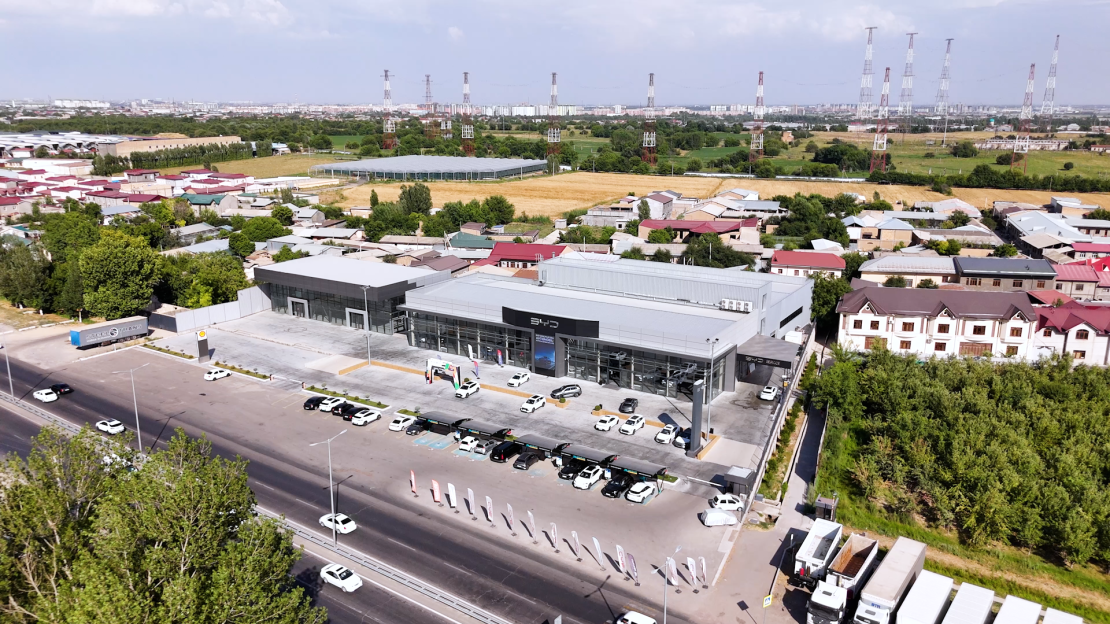The most populous country in Central Asia is heavily dependent on burning fossil fuel for electricity. But over the next few years, Uzbekistan plans to slash its carbon footprint.
That’s no easy feat for one of the world’s most carbon emission-intensive economies, according to the World Bank. And one part of its green growth strategy is encouraging the adoption of electric vehicles (EVs).
Five years ago, the country dropped excise and customs duties on electric and hybrid vehicles. This ended up cutting the cost of buying an EV by as much as half, according to some estimates. Over the past three years, sales of EVs in Uzbekistan have increased 10-fold.
For Tashkent-based project manager Timur Chutbaev, the lower price was a major incentive to buy his first battery-powered car.
“Because of my job I travel a lot … and I’ve driven many cars,” Chutbaev told CNN. “If you compare a similar model or similar price range, it’s cheaper to buy an EV now than to buy a gasoline car.”
Powering an electric car is also cheaper than one running on diesel or gasoline as Uzbekistan has some of the world’s lowest electricity costs, which are heavily subsidized by the government. Chutbaev says charging at home costs him $5 for 500 kilometers (310 miles) of driving.
Last year, just over 25,000 electric cars were sold, out of 1.7 million total car sales. Of those EVs, over 90% came from China, with Shenzhen-based BYD, one of the world’s biggest EV manufacturers, dominating imports.

In June, BYD began manufacturing plug-in hybrids in Uzbekistan’s Jizzakh region. The plant has an annual production capacity of 50,000 cars, which are intended for sale across Central Asia. They were the first passenger cars that BYD made outside of its home base in China, a milestone that was replicated a month later by a plant in Thailand.
Local EV dealer Megawatt Motors imported a range of brands when it started out in 2019 and now exclusively offers BYD vehicles. CEO Alexander Abdullaev said that it had previously struggled to sell any EV model, largely due to a lack of infrastructure to charge them.
“We felt that electric cars, at least without charging stations anywhere, were very difficult to promote. So we installed 10 charging stations in the city of Tashkent and in several regions,” he added.
Abdullaev said his company provided free electricity for around two years. In 2020, it rolled out repair services for all electric and hybrid cars, which was designed to form a loyal base of customers.

Gradually, he says EVs are become more popular and accessible in Uzbekistan. Today, there are hundreds of charging stations across the country, built by Megawatt Motors and other local operators.
But increasing the share of EVs on roads won’t be enough for the country to reach its 2030 target of cutting its emissions per unit of gross of product (GDP) by one third compared to 2010 levels.
“This is a significant increase in its commitments,” said David Knight, the World Bank’s lead country economist covering Central Asia. “Anything that it can do to improve the efficiency of its production and reduce emissions will be important, especially as it grows rapidly.”
For the growth in EVs to have an impact, Uzbekistan will have to clean up the grid that powers them. In 2021, more than 80% of the country’s electricity came from burning natural gas, a fossil fuel that contributes to climate change. But there is growing investment in hydropower and solar technologies.
“Uzbekistan’s renewable energy mix is increasing quite rapidly from 12% five years ago to 20% now,” says Knight.
He notes that electricity costs could rise to meet the cost of production and fund further reforms to the energy sector. This May, electricity and gas tariffs increased for the first time since August 2019. In future, higher running costs might impact drivers’ decision to own EVs.
For now, at least, demand is strong, according to Megawatt Motors. This year, the company is launching a program to train more salespeople to be EV specialists able to cater to the growing market.
“We have gone through a leap that some countries go through in 10 to 15 years,” said Abdullaev.
He predicts Megawatt may even sell electric cars made by homegrown brands in future.
“Uzbekistan has been developing automobile production since 1995, and still is. Now it will be easier to jump to the stage of producing electric vehicles, and all this will happen faster,” he says. “Anything is possible.”
Read the full article here

